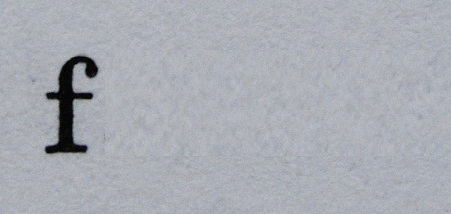A Guide to Intellectual Property, Copyrights and Trademarks for Creators, Businesses and Brands
You’ve done all this work. You’ve spent hours trying to make the words perfect and the paragraphs flow. Or you’ve done research to make sure what you’re saying is accurate. Or you’ve LLCed your business and created a respected brand. Or you’ve spent hours editing those pictures you took so they’re exactly how you want them to be. Then someone comes and copies and pastes your work and in seconds, they’re capitalizing off what you spent hours/days/weeks/months/years on. DAMBIT!
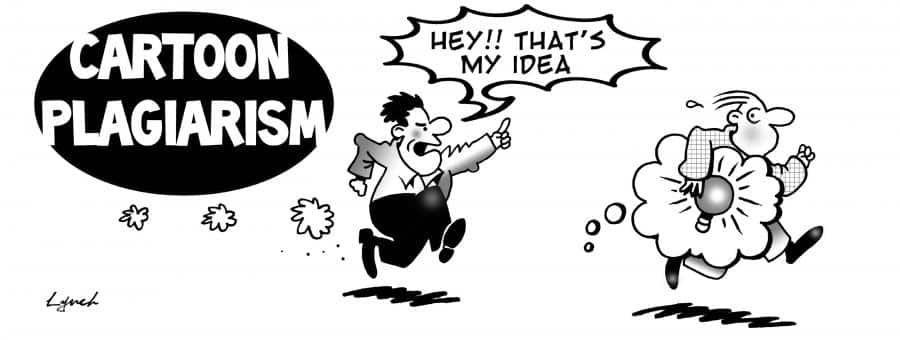
From ToonPool.com
If you have a business, get ideas for side hustles or are just creative in any way, then you need to know about Intellectual Property (IP) and the rights you have. Simply put, IP refers to ideas (things owned by your brain). Writers, artists, photographers, business owners, marketers, and all creatives we all need to be knowledgeable about it because our ideas are priceless so we need to protect them. We also need to know what it means to infringe on someone else’s idea because mistakes like that could be costly, time and money-wise.
The first thing to do is to research whatever it is that you want to do. A little research on Google can take you a long way and save you a lot of energy and resources. If someone is already using the name you want in the same industry, or has the same idea as you, it’s pretty easy to find info on it. You’ll be surprised how many people skip this step, thinking that their idea is surely one in a million, just to start and have to stop because they get a cease and desist letter.
I’ve been running my company for over a decade, and have had an attorney the entire time. I’ve run several other businesses and campaigns, so I’ll share some of this info I’ve learned with you.
With that being said, I’m here to give a crash course on things you should know about intellectual property, copyrights and trademarks.
Disclaimer: *taps mic* IS THIS THING ON? Please keep in mind that this is in no way supposed to serve as “legal” advice. Retain a lawyer for that. This is just MY knowledge, gathered over years of being a creative and running a media company. *drops mic*
Know the difference between trademarks and copyrights
What is a trademark?
A trademark (TM or ™) identifies the source of a word, phrase, symbol, or design. Business names, logos and taglines fall in this category. TM is the sign for it and it is used for unregistered trademarks (also called common law trademarks). It means the originator/owner of the symbol or word or design hasn’t received an official registration from the U.S. Patents and Trademark Office (USPTO) but they’re claiming ownership of it.
You begin to establish your TM by using it openly. It puts people on notice that this is your mark.
Once you register your trademark federally with the US Patents and Trademarks Office (USPTO), that TM symbol becomes ® (for: registered). It serves as proof of mark ownership and you can defend yourself and your work, even by suing in Federal Court if you need to. It also lets people know you’re officially official. Also, it’s not in perpetuity. It’s good for 10 years. That means every decade, you have to re-file to keep your registration or you can lose the exclusive rights to it.
What is a copyright?
A copyright is a protection of an expression of an idea. This means writing, music and art (photographs included). The symbol is ©. Unlike a trademark, your ownership of a copyright begins the moment you publish a work. You don’t have to apply for it for your work to be copy-written but filing official documents gives you more protection.
The moment you press post on your blog, or you take that picture or you make that drawing, you have the claims to it. Copyrights do not protect ideas or facts. So what you WERE going to do or what you were thinking about doing is not something you can copyright. You have a business you want to do? DO IT. Someone might beat you to the punch and you will be left kicking yourself. The moral of that is: Ideas are nothing. Execution is key.
You can put a copyright notice on your work (or on your blog) or your pics to further let people know that it is yours and you retain the rights. Example of a copyright notice you can put on your work (like the bottom of your blog): “Copyright 2023 by Luvvie Ajayi Jones of Awesomely Luvvie. All Rights Reserved.” Watermarks on pictures are also notices to let people know about ownership.
Establish yourself as the owner of your work/idea
No matter if you’re a business, blog or brand, it is up to you to establish ownership of your intellectual property and establish yourself as the originators of marks related to your work. How do you do it?
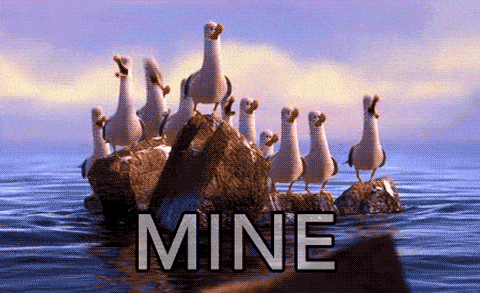
Common Law trademark (TM) does allow you to say that you own something but it does not come with the same protection as registering with the USPTO. And even though you copyright a piece of work upon public posting, the same thing stands. Registering your mark federally allows you to take action in court and get compensated better for the infringement.
File trademark application
The USPTO charges a fee of $325 per application you file (and one app is for one mark). So if you will be trademarking your logo and your tagline, for example, that’s two marks and $650. However, this process is better when done with the help of an attorney because it’s not that straightforward and lawyers have access to databases most of us do not have. Even in doing your own Google research, you aren’t covering all our bases in ensuring that whatever you’re trying to trademark isn’t too similar to someone else’s mark. Trust me, pay for a lawyer if you can.
Formally copyright it
Copyright.gov: For bloggers, you can register 3 months worth of your blog posts at a time here for $45 a pop. And it could be very well worth it. This can be done online so it’s kind of convenient (although the process is a little confusing once you start the process on the website). Just read the instructions well.
Buy the URLs
You’ve got to claim the corresponding domain names of your marks, and .com is priority. Go to any number of sites (like GoDaddy.com or Register.com or Domain.com) and also buy the .com and .org versions of it because someone might purchase one of them to cyber squat. Surreal estate is valuable and you want to snap yours up. This can also be important even in your application to copyright or trademark your work. It all goes to prove that you are really the owner of the idea and you’re USING IT.
Secure the social media usernames
Get the social media usernames for any of your entities, whether it’s business or books. Do that before you go public with it. Use Namechk.com to check over 100 sites to see if the name is still available.
Monitor your work
You need to monitor your marks online. To make sure that your content isn’t being used by any and everybody without your knowledge, you want to keep eyes on it to know what buzz you’re getting. Know what people are saying so you can identify possible infringement and go after it.
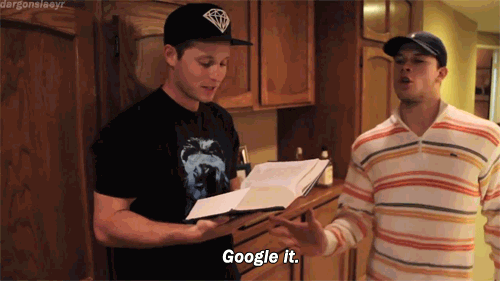
Google Alerts
Sign up for Google Alerts, using words related to you and your business, and get them delivered to your email inbox or RSS feed reader. I have many alerts set up for me, including for the phrases “Awesomely Luvvie”, “Luvvie Ajayi Jones”, etc. Any words or phrases that are closely tied to you as a person or to you as a business owner and brand should be added. That way, you’ll be able to keep track of your digital footprint better. Ignorance isn’t bliss on these e-Streets.
Google and Twitter search
Ever so often, go on Google, Twitter, Facebook and search for yourself and mentions of your work. This isn’t about narcissism, but about necessity. They’re all real-time so they’ll tell you what’s happening now. Nowadays, your online reputation IS your resumé and you want to know what it looks like. Know what the internet is saying about you, so search every month.
Defend your work
When you’ve trademarked something or your work is copy-written but someone comes along and tries to profit off your idea, it’s called infringement. According to Copyright.gov, copyright infringement occurs when a copyrighted work is reproduced, distributed, performed, publicly displayed, or made into a derivative work without the permission of the copyright owner.
One thing to know about trademarks: even after you federally register them, you can lose the rights to them if you do not defend them. This is why people have to be aggressive about their marks.
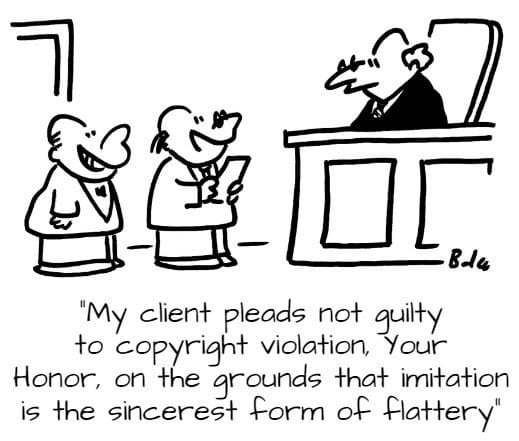
© Original Artist Reproduction rights obtainable from www.CartoonStock.com
Imitation is not the sincerest form of flattery. It is aggravating and reeks of your own inability to be original.
So what do you do when your work is infringed upon?
Request that it be rectified by infringer
When someone steals your work, what do you do? Tell the offender that they took your content without your permission (which they know) and that you certainly don’t appreciate it or consider it good publicity (which they may not realize). Tell them the action you want them to take (be specific) and ask them to respond to you by a certain date and time. Deadlines are good, and show that you have a clear demand. (see: the time when I went off on a “journalist” who plagiarized my work)
If someone is using your organization or business name for an event or to sell a product or to just make money in any other way, you can demand that they stop whatever it is OR that they remove anything that is related to your trademark or copyright from it. Again, give a deadline.
For websites that steal your work but don’t tell you who is behind it, do a WHOIS search, using the URL, and it should give you the information of the owner of that domain IF they haven’t paid for private registration. If the person is uncooperative or you still can’t dig their info up, email their site host and let them know that your intellectual property was stolen. The webhost might pull down the site themselves. And ask them to respond by a certain date and time. They probably will not but it gives him a deadline of sorts. THEN move to next step.
File DMCA takedown notice
The DMCA is the Digital Millennium Copyright Act which was enacted in 1998. According to DMCA.pro, it’s:
“THE DMCA MAKES IT ILLEGAL TO PRODUCE, AND SHARE COPYRIGHTED WORKS. IT ALSO MAKES IT ILLEGAL TO OFFER TECHNOLOGY, DEVICES, OR SERVICES DESIGNED TO GET AROUND ANY COPYRIGHT PROTECTION YOU HAVE INCLUDED IN YOUR COPYRIGHTED WORKS. PENALTIES ARE STEEPER WHEN THE COPYRIGHT INFRINGEMENT IS ONLINE.”
So if your work has been plagiarized, you can send a DMCA notice to the offending party, asking them to take it down. There’s a DMCA Generator that collects certain info and spews out a notice for you to use. Websites like DMCA.com can help you file a claim too. When you send a notice like that to website or the host of a website, they have to take you seriously, or they run the risk of being liable if you happen to sue. Also, DMCA notices are what companies typically send YouTube when someone uploads a video they own to their channel.
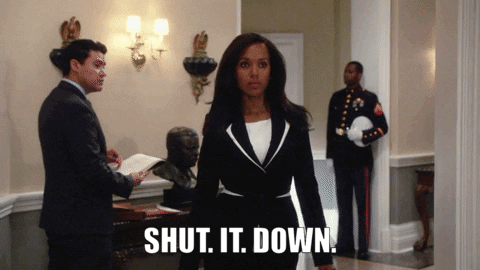
When the host receives the DMCA Takedown notice, they must review and take action within 14 days. That’s what’s great about the DMCA. It requires social media sites to review complaints of intellectual property infringement.
If none of this works and you want this rectified, you can go to the next and most serious (and costly) step.
Get a Lawyer
This step is the last one because it can be a big financial and time commitment to do so. A lawyer can send the offending party an official Cease & Desist letter, putting them on notice that they’re infringing on your work and that you demand they rectify this.
But in deciding to retain an attorney, be aware of the mounting expenses that may occur. You should weigh the cost of suing and pursuing legal action against how much damage you think is really being done.
It’s definitely not an easy decision for most to make, but it can be worth it to protect your work. For creatives who are financially eligible (read: broke), you might be able to find a lawyer to do pro bono work or at a greatly reduced fee for you. Look for an organization in your area like Lawyers for the Creative Arts.
Your intellectual properties (ideas, writing, art) are priceless. Sometimes you have to fight against people who steal them.
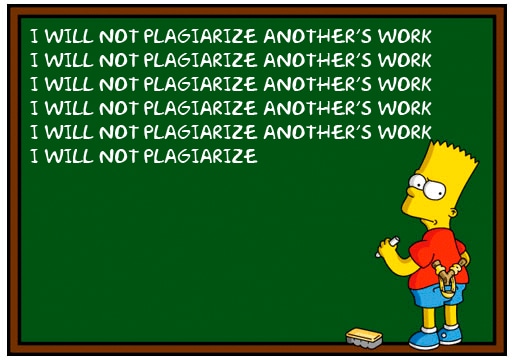
Tell em, Bart!
It’s understood that nothing is truly new under the sun, but ideas are important, and others are short of them. There’s a difference between being inspired by someone’s work, and just blatantly copying. If you DO decide to imitate, by all means, give credit to the person whose work you copied to make yourself be great. And IF you’re the one being copied, fight for what’s yours. Plagiarism sucks!
People get their work stolen every day, especially with social media being a giant game of telephone. The worst thing is when folks feel helpless from it. I hope this helps in letting us all know what our rights are. But keep in mind that it is not an exhaustive post on this topic. I could have said much more. I suggest that you follow Creative Genius Law blog, run by Patrice Perkins, a great IP attorney out of Chicago. She’s my go-to and a trusted resource on this topic.
Leave a comment if you have questions.
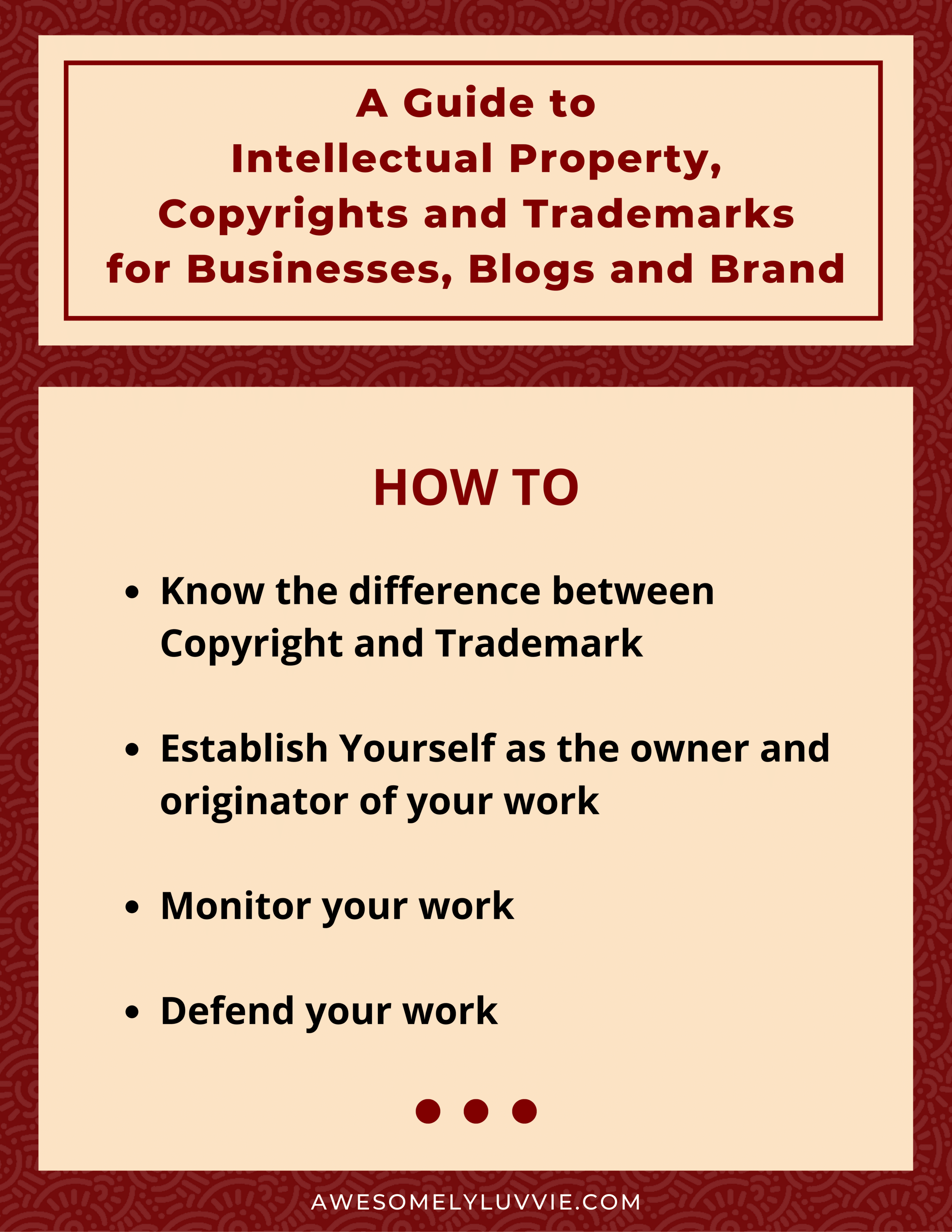
If you found this post helpful, click one of the buttons below to share this post on social media!



